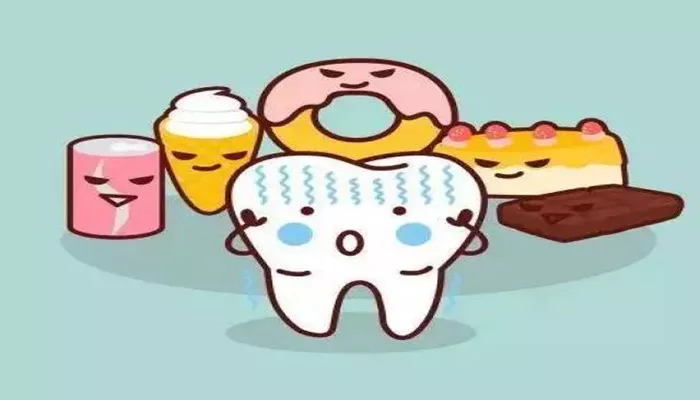Eucalyptus is a popular plant known for its aromatic leaves and essential oil. It is commonly used in various products, including mouthwashes, toothpaste, and herbal remedies. Many people wonder if eucalyptus is safe for dental health or if it can cause harm to teeth and gums. This article will explore the effects of eucalyptus on oral health, its potential benefits, and any risks associated with its use.
Understanding Eucalyptus
What Is Eucalyptus?
Eucalyptus is a genus of trees and shrubs native to Australia. The leaves of eucalyptus trees are rich in essential oils, which have antimicrobial and anti-inflammatory properties. Eucalyptus oil is often used in aromatherapy, as well as in personal care products, including dental hygiene items.
Common Uses of Eucalyptus
Eucalyptus is used for various purposes, including:
Respiratory Health: Eucalyptus oil is often used in steam inhalations to relieve congestion.
Pain Relief: It can be applied topically to soothe muscle and joint pain.
Oral Care: Eucalyptus is included in some mouthwashes and toothpaste for its antibacterial properties.
Benefits of Eucalyptus for Oral Health
Antimicrobial Properties
Eucalyptus oil has strong antimicrobial properties. It can help reduce the growth of harmful bacteria in the mouth, which can contribute to dental issues such as cavities and gum disease. By inhibiting the growth of bacteria, eucalyptus may help maintain better oral hygiene.
Anti-Inflammatory Effects
The anti-inflammatory properties of eucalyptus can be beneficial for gum health. Inflammation of the gums, known as gingivitis, can lead to pain and discomfort. Using products that contain eucalyptus may help reduce inflammation and promote healthier gums.
Freshens Breath
Eucalyptus has a refreshing scent and flavor, making it a popular ingredient in mouthwashes and toothpaste. It can help mask bad breath and promote a feeling of freshness in the mouth.
Potential for Reducing Plaque
Some studies suggest that eucalyptus oil may help reduce plaque buildup on teeth. Plaque is a sticky film of bacteria that forms on teeth and can lead to cavities and gum disease if not removed through proper oral hygiene.
Risks of Eucalyptus for Dental Health
Allergic Reactions
While eucalyptus is generally safe for most people, some individuals may be allergic to it. Allergic reactions can manifest as skin irritation, swelling, or difficulty breathing. If you experience any adverse reactions after using eucalyptus products, discontinue use and consult a healthcare professional.
Toxicity in Large Quantities
Eucalyptus oil is highly concentrated and can be toxic if ingested in large amounts. Swallowing significant quantities of eucalyptus oil can lead to symptoms such as nausea, vomiting, and diarrhea. It is essential to use eucalyptus products as directed and avoid swallowing concentrated oil.
Potential for Oral Irritation
Some people may experience irritation in the mouth or throat when using eucalyptus oil. This can occur if the oil is too concentrated or if an individual has a sensitivity to it. If you notice any burning or discomfort after using eucalyptus products, it may be best to stop using them.
Interaction with Other Medications
Eucalyptus may interact with certain medications, particularly those that affect blood clotting. If you are taking anticoagulants or other medications, consult your healthcare provider before using eucalyptus products.
How to Use Eucalyptus Safely for Oral Health
Choose Quality Products
When using eucalyptus for oral health, it is crucial to choose high-quality products. Look for mouthwashes and toothpaste that contain eucalyptus oil as an ingredient. Ensure that the products are from reputable brands and are specifically designed for dental care.
Use in Moderation
Eucalyptus oil should be used in moderation. Follow the instructions on the product label and avoid using concentrated eucalyptus oil directly in the mouth. Diluting the oil or using products that contain it in lower concentrations is safer.
Monitor for Allergic Reactions
If you are trying eucalyptus for the first time, monitor your body for any signs of allergic reactions. If you notice any unusual symptoms, discontinue use and consult a healthcare professional.
Maintain Good Oral Hygiene
Using eucalyptus products should not replace regular oral hygiene practices. Brush your teeth at least twice a day with fluoride toothpaste, floss daily, and visit your dentist regularly for check-ups and cleanings. Combining eucalyptus with good oral hygiene can help maximize its benefits.
Alternatives to Eucalyptus for Oral Health
If you are concerned about using eucalyptus or have experienced adverse reactions, there are several alternatives to consider:
Tea Tree Oil
Tea tree oil is another natural product with strong antimicrobial properties. It can help reduce bacteria in the mouth and promote oral health. However, like eucalyptus, it should be used in moderation and diluted properly.
Peppermint Oil
Peppermint oil is well-known for its refreshing flavor and breath-freshening properties. It can also have antibacterial effects, making it a popular choice in oral care products.
Clove Oil
Clove oil has been used for centuries for its analgesic and antimicrobial properties. It can help relieve toothache and promote gum health. Clove oil should also be used in moderation and diluted before application.
Conclusion
Eucalyptus can offer several benefits for oral health, including antimicrobial and anti-inflammatory properties. It may help reduce plaque, freshen breath, and promote healthier gums. However, it is essential to use eucalyptus products safely and in moderation to avoid potential risks, such as allergic reactions and irritation.
If you are considering using eucalyptus for your dental care routine, consult your dentist or healthcare provider for personalized advice. Remember that maintaining good oral hygiene practices, including brushing, flossing, and regular dental visits, is crucial for preventing dental issues. By combining these practices with the potential benefits of eucalyptus, you can support your overall oral health effectively.
Related topics:

